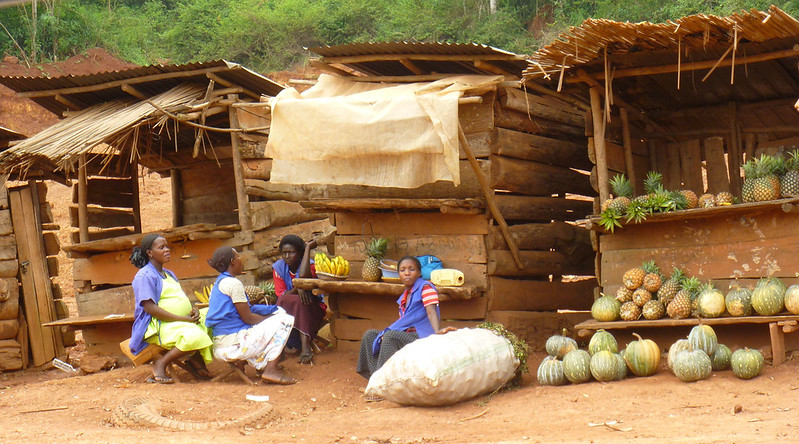IFAD’s Plans to Transform the Rural Economy of Uganda
 In 2020, reports indicated that 84% of Uganda’s population lived in rural areas, with the majority earning their livelihood through farming. Despite being the primary food producers for their nation, rural residents disproportionately face poverty. In 2022, about 30% of the rural population, approximately 10 million men, women and children, lived below the national poverty line. The rural economy of Uganda is pivotal to the nation’s overall economic health.
In 2020, reports indicated that 84% of Uganda’s population lived in rural areas, with the majority earning their livelihood through farming. Despite being the primary food producers for their nation, rural residents disproportionately face poverty. In 2022, about 30% of the rural population, approximately 10 million men, women and children, lived below the national poverty line. The rural economy of Uganda is pivotal to the nation’s overall economic health.
A continued focus on agricultural productivity is essential to sustain and accelerate Uganda’s economic growth, for a large amount of Uganda’s population agriculture is the main pathway out of poverty. The International Fund for African Development (IFAD) is dedicated to eradicating poverty and hunger in rural areas of developing countries. IFAD plans to transform the rural economy of Uganda and involves multiple projects working to increase the income and livelihood of the rural population.
The National Oil Seed Project
The National Oil Seed Project (NSOP), which will span from 2019 to 2028, has an estimated total cost of $160.69 million, with IFAD financing $99.56 million of it. This project represents IFAD’s commitment to transforming the rural economy of Uganda by reducing oilseed and their product imports. It aims to address the domestic production shortfall of oilseeds used in making vegetable oil and other by-products.
By reducing imports, the project boosts national production to satisfy demand. It targets at least 120,000 smallholder farmers to foster rural transformation by sustainably developing the oilseed sector. Additionally, the initiative will create opportunities for private sector investment in oilseed and by-products like animal feed. This effort seeks to build a competitive oilseed industry in Uganda, significantly benefiting the rural economy.
The National Oil Palm Project
IFAD’s plan to transform the rural economy of Uganda also includes the National Oil Palm Project (NOPP). This ongoing project will run from 2018-2029 and has a total project cost of $216.2 million, with IFAD financing $77.03 million. NOPP aims to support inclusive rural transformation through strategic investment in oil palm.
Establishing an efficient oil palm industry will sustainably boost rural livelihoods through generated opportunities. The National Oil Palm Project is estimated to directly benefit 30,800 poor and vulnerable rural households. Additionally, the project aims to minimize market risks for smallholder oil palm growers by ensuring their access to investment credit, technical expertise and quality inputs.
Rural Development
Investing in agriculture in Sub-Saharan Africa proves up to 11 times more effective in reducing extreme poverty compared to other sectors. This effectiveness stems from small farms hiring unskilled laborers, generating income that boosts rural communities and strengthens the rural economy.
IFAD’s plans to transform Uganda’s rural economy are pivotal in alleviating poverty. Central to efforts to eradicate hunger and poverty, rural development encompasses not only economic transformation but also social change and the promotion of gender equality and inclusiveness. This holistic approach aims to enhance the overall well-being of rural communities.
Looking Ahead
With initiatives like the National Oil Seed Project and the National Oil Palm Project, Uganda is on the cusp of an agricultural revolution that promises to uplift its rural population. IFAD’s targeted investments aim to transform the rural economy, fostering a sustainable pathway out of poverty for millions. In addition, these efforts, centered on enhancing agricultural productivity and promoting inclusivity, herald a brighter future for Uganda’s rural communities, driving economic growth and improving lives.
– Arabella Wood-Collins
Photo: Flickr
